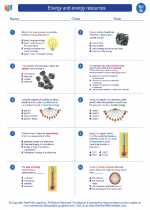What is Embryology?
Embryology is the study of the development of embryos from the fertilization of the ovum to the fetus stage. It involves the study of how cells divide, differentiate, and organize themselves to form the complex structures of an organism.
Key Concepts in Embryology
- Fertilization: The union of a sperm cell with an egg cell to form a zygote.
- Cell division: The process by which a single cell divides and gives rise to multiple cells, leading to the formation of an embryo.
- Germ layers: The three primary layers of cells (ectoderm, mesoderm, and endoderm) that form during embryonic development and give rise to different tissues and organs.
- Organogenesis: The process of organ formation during embryonic development.
- Developmental stages: The sequential stages of embryonic development, including cleavage, gastrulation, and neurulation.
Significance of Embryology
Embryology is important for understanding the fundamental processes that govern the development of organisms. It is also crucial in fields such as evolutionary biology, genetics, and medicine, as it provides insights into the causes of developmental disorders and birth defects.
Embryology in Medical Research
Embryology plays a key role in medical research, particularly in the study of birth defects, infertility, and regenerative medicine. Understanding the mechanisms of embryonic development is essential for developing potential treatments and interventions for various medical conditions.
Embryology and Evolution
Embryology provides evidence for evolution through the study of similarities in embryonic development among different species. The presence of homologous structures and developmental pathways in embryos supports the concept of common ancestry and evolutionary relationships between organisms.
Embryology Resources
For further exploration of embryology, consider utilizing resources such as textbooks, online lectures, and interactive simulations to gain a deeper understanding of this fascinating field.
.





